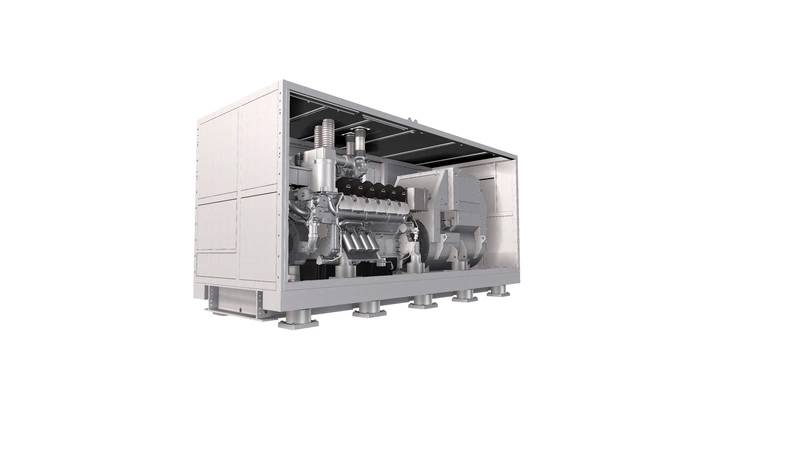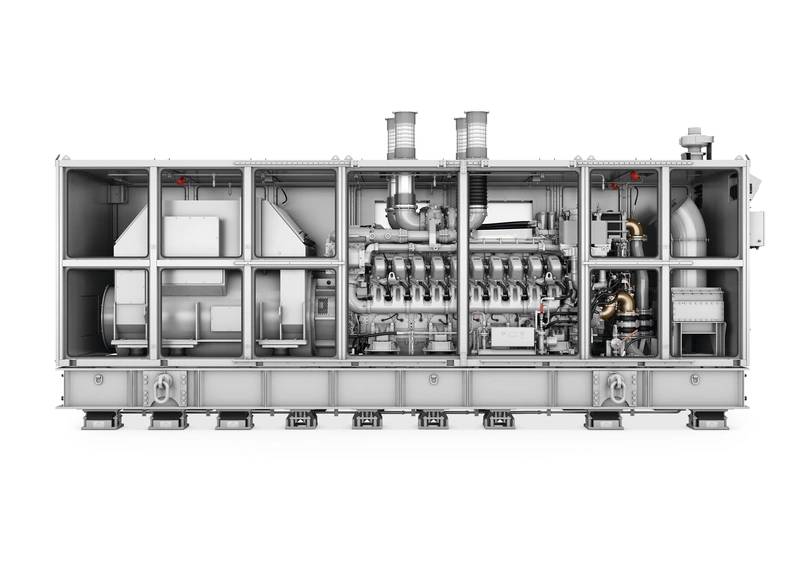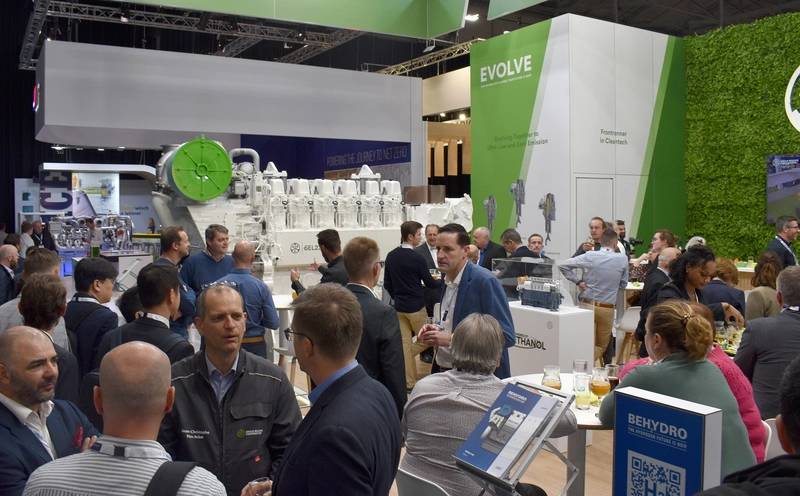Naval Power: Navies Increasingly Eye Alternative Fuels
Alternative fuels are not top of the list of naval requirements for gensets, but they are inching their way up.
The naval world is largely exempt from the decarbonization pressure faced by commercial shipping, but it can’t ignore it entirely. As a famed naval strategist once said: “Fuel stands first in importance of the resources necessary to a fleet.”
Navies must therefore consider their fuel supply options carefully given that commercial shipping is currently rewriting supply and demand dynamics.
Indeed, DNV surveyed some 130 naval, shipyard and fuel supply stakeholders from 12 countries in 2022 and found that logistics (fuel availability / fuel change flexibility) was ranked as one of the top four concerns by 79.2% of respondents. More than 83.3% of respondents chose biofuels as an alternative fuel over ammonia and methanol, and the majority believed that non-combat vessels would be the first to adopt alternative fuels, rather than frigates and destroyers.
Engineering research teams at the University of South Carolina are already designing a non-carbon fuel supply chain for the U.S. Navy. Funded by the Office of Naval Research, the three-year project aims to reduce the Navy’s CO2 emissions through alternative fuels that could be implemented in the Navy’s next-generation fleet.

Image courtesy MAN ES
Oak Ridge National Laboratory (ORNL) and Fairbanks Morse Defense (FMD) are collaborating on the development and integration of alternative fuel technologies into engine technologies based on the reasoning that global decarbonization efforts are expected to limit the availability of diesel fuel and drive-up costs. In anticipation of this shift, the Department of Defense is exploring options to transition to low-lifecycle carbon fuels such as methanol, ammonia, hydrogen and biodiesel.
Many OEMs are ready for biodiesel. The MAN 175D engine, for example, has been formally approved for operation on biofuels. These gensets feature in a recent order for four new European anti-submarine warfare frigates. The first engines and generator sets are scheduled for delivery in August 2025 with Damen Naval expected to start delivering the frigates to the Royal Netherlands and Belgium Navies from 2028.
Late last year, Anglo Belgian Corporation (ABC) unveiled the third engine model from its multi-fuel ready Evolve engine platform. The Evolve 6EL23 joins the entry-level 4EL23 and the 20EV23 at the top end of the Evolve range. A defining feature of the Evolve engine platform is its multi-fuel and future-proof design. The adaptable cylinder head design enables effortless transition from liquid fuel to dual fuel, and to 100% gaseous fuels, eliminating the need for a specific fuel commitment.
The Evolve platform is very suitable for naval applications, says Jean‑Christophe Van Acker, Sales Manager for military projects, as it has:
- A 1200RPM engine, allowing max power at 60Hz for diesel electric applications
- A full range of engines allowing the customer to take main engines and generator sets from the same family from 1,000-8,000kW
- An improved power to weight ratio in the V models
- Two-stage turbochargers for higher efficiency and longer range
- Mechanical versions for simple maintenance
- A special Navy rating of 400 kW/cylinder.
Different navies are considering alternatives to diesel and studying the pros and cons of switching or adding extra fuel options to their ships, Van Acker says, including diesel electric or diesel hybrid solutions to reduce their footprint and add redundancy in their power needs. This is important as many navies are increasingly looking for multi-mission vessels.
“New is the growing involvement of the EU via the European Defence Fund programs which aim at increasing the collaboration between countries on the subject of design, interoperability and strategic sourcing and industrial capabilities,” he says.
Romain Cazal, Global Market Leader – Navy Ships, Bureau Veritas Marine & Offshore
Image courtesy Bureau Veritas
Romain Cazal, Global Market Leader – Navy Ships, Bureau Veritas Marine & Offshore, says that alternative fuels such as hydrogen, ammonia or green methanol could constrain of naval operations which may not be compatible with the limited supplies and potential bunkering locations of those fuels.While the risks of fire or explosion related to the use of hydrogen limit the potential use of fuel cells aboard surface vessels, fuel cells can be considered for submarines and could provide longer underwater autonomy when combined with conventional propulsion, he says. Air independent propulsion systems, powered by different generations of fuel cells, have been demonstrated by some countries.
Despite consideration of the potential for alternative fuels, noise, vibration and shock characteristics remain important naval genset features, particularly for combat vessels. Klaus Schmidt, responsible for engineering naval systems at Rolls-Royce Power Systems, notes that four MTU 20V 4000 gensets will provide a total power output of 12MW for propulsion and onboard power supply for the U.S. Navy’s Constellation Class Guided-Missile Frigate program, including the first ship in the class, USS Constellation (FFG-62).
This genset model is an evolution of earlier models that combines updates from the civil engine range, such as more digitalization, as well as naval-specific features. These features include sophisticated fuel injection systems, shock resistant crank case materials and deep oil pans for extended performance during incline. Acoustic requirements are becoming more stringent as detection systems become more sophisticated, says Schmidt, and Rolls-Royce is working with suppliers on enhanced mounting systems, including active mounting.
Simon Riddle, general manager, Naval Sales – Wärtsilä Marine, points to the need for engines to have the ability to deliver fast response and maneuverability. “We have updated our engine controllers with faster processors, which assist our naval and coast guard customers with faster load ramps. This is a common platform that we offer for the entire range of Wärtsilä engines.”
Fuel efficiency is important for existing fuels, not just future fuels, and efficiency was key for the choice of Wärtsilä’s 31 engines for a new Canadian Coast Guard polar icebreaker being designed and built at Seaspan Vancouver Shipyards. The engines will meet the requirements for the long operational range required for the vessel’s employment in Arctic waters.
Riddle is also seeing interest in alternative fuels, and he points to the technology link between commercial and naval markets: “We are seeing a general interest from naval vessels, as well as coast guard and research vessels, for alternative fuels, especially at a European level,” he says, but due to the conservative nature of naval vessels, they are focused on following commercially proven engine technologies which are robust and reliable.


